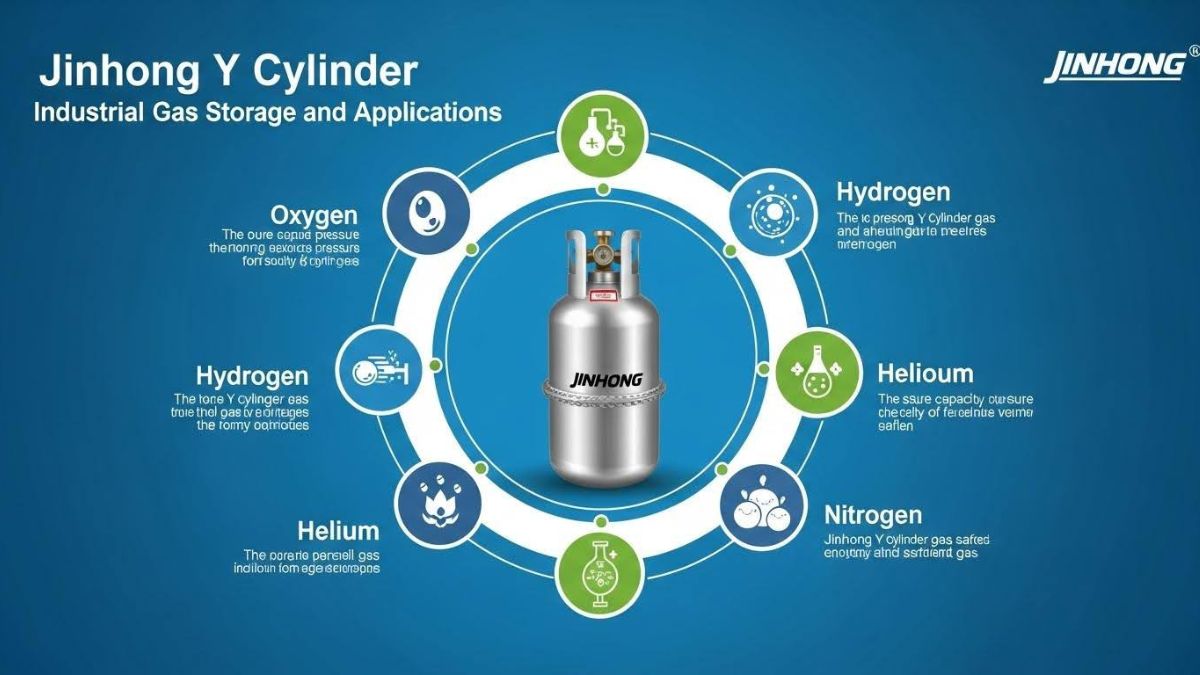TOPIC
Why Attend an International Conference in Canada? (Key Benefits)

Researchers, professionals, and students from all over the world meet at conferences in Canada. These events are hosted in renowned cities, bringing a wide range of fields under one roof. As these gatherings grow in popularity, you may find yourself wondering, Why attend an international conference in Canada?
Attending an international conference in Canada expands knowledge, builds networks, and enhances career prospects. Participants gain insights into industry trends, improve communication skills, and find research opportunities. These events foster leadership, problem-solving, and motivation, making them valuable for academic and professional growth.
Curious about this topic? Dive into the article to uncover all the reasons why these conferences are worth attending. You’ll find everything you need to know right here.
Why Attend an International Conference in Canada?

There are various benefits to attending an international conference in Canada that can enhance your development both academically and professionally. These events provide opportunities to gain insights, expand networks, and improve essential skills. Let’s explore some key benefits that make them worthwhile.
Expanding Knowledge
Conferences provide direct access to the latest research, industry trends, and innovative ideas. Experts share real-world applications of theories, making learning more practical. Listening to multiple perspectives can help develop critical thinking skills. These events encourage discussions that go beyond textbooks. Gaining fresh insights can inspire new projects and academic interests.
Building Strong Networks
Connecting with professionals, researchers, and peers can lead to valuable relationships. Discussions during meetings or networking breaks may lead to future partnerships. Meeting people from different backgrounds broadens perspectives and enhances global connections. Some connections may lead to internships, mentorships, or job opportunities. Staying in touch with like-minded individuals helps in long-term career growth.
Improving Communication Skills
Speaking at a conference or engaging in discussions enhances confidence and public speaking abilities. Learning how to express ideas clearly in front of an audience is a crucial skill. Asking questions and sharing opinions encourage active participation. Engaging with professionals helps in developing strong interpersonal communication. These experiences prepare attendees for future presentations and professional interactions.
Enhancing Career Prospects
Many conferences provide insights into industry demands and career trends. Employers and institutions often look for candidates who take initiative in learning. Adding conference participation to a resume shows commitment to professional growth. Discussions with experts help in identifying potential career paths. Learning from professionals can provide guidance for future academic or work opportunities.
Discovering Research Opportunities
Attendees get to explore groundbreaking research before it is widely published. Interacting with researchers helps in understanding the latest advancements in different fields. Some conferences offer opportunities to collaborate on studies or projects. Engaging with academic discussions sharpens research and analytical skills. Introduction to new methodologies can be useful for future academic work.
Developing Leadership Qualities
Conferences encourage participation in discussions, panels, and group activities. Taking the initiative to ask questions or share opinions builds leadership skills. Learning from experienced professionals helps in understanding decision-making strategies. Engaging in teamwork and collaborative projects strengthens leadership abilities. Confidence in handling intellectual conversations is an essential trait in any career.
Strengthening Problem-Solving Abilities
Workshops and case studies presented at conferences focus on real-world challenges. Analyzing different perspectives on a problem sharpens critical thinking skills. Exposure to practical solutions helps in applying knowledge effectively. Learning from industry leaders provides strategies for handling complex situations. Academic and professional people can benefit from the problem-solving skills acquired here.
Staying Inspired and Motivated
Interacting with ambitious individuals creates a motivating environment. Learning about successful projects and research encourages personal growth. Introduced new ideas that spark creativity and innovation. Seeing professionals discuss their achievements helps set future goals. The experience leaves attendees with a fresh perspective and renewed enthusiasm.
Access to the Latest Insights
Participating in international conferences in Canada provides access to discussions on the latest industry advancements. Experts often present research that has yet to be widely shared. Keeping up with these insights helps attendees stay ahead in their field. Exposure to emerging trends enhances adaptability and readiness for future changes. Being aware of industry shifts is beneficial for long-term success.
There are numerous advantages to attending conferences that support professional and academic growth. The knowledge gained, networks built, and skills developed make these events valuable for anyone looking to grow in their field.
Why is Engaging With Experts Beneficial for Career Development at International Conferences in Canada?
Engaging with experts at Canadian international conferences can be a game-changer for anyone looking to grow in their field. These interactions go beyond regular learning, providing fresh insights and unexpected opportunities. Let’s explore how expert engagement can boost career development.
Gaining Real-World Advice
Experts bring years of experience that can’t always be found in books. They share practical knowledge about industry trends, workplace challenges, and career growth strategies. Learning from their experiences helps in making informed decisions. Direct conversations allow for deeper insights that can shape future plans.
Receiving Constructive Feedback
Getting feedback from experienced professionals can highlight strengths and areas for improvement. Their advice helps in refining ideas, research, or career choices. Honest insights from experts can lead to better problem-solving skills. Knowing different viewpoints encourages personal and professional growth.
Finding Hidden Career Paths
Many professionals have achieved success by following alternative paths. It is possible to discover unexpected career options by talking to them. Learning about their experiences broadens our perspective and opens up new possibilities. Making well-informed decisions requires experimenting with different career options.
Accessing Insider Knowledge
Experts often discuss industry shifts, upcoming trends, and skill demands. You can gain an advantage in the job market if you know what companies require in candidates. Knowing what employers want in candidates can help you plan your career. In order to develop relevant skills, one needs to stay informed of industry needs.
Creating Lasting Impressions
Conversations with professionals leave a positive impression. Strong impressions can lead to mentorship, recommendations, or collaborations. Expressing genuine curiosity and enthusiasm makes interactions more valuable. Building a reputation through these discussions benefits long-term career growth.
Interacting with experts is more than just gaining knowledge—it’s about building relationships, refining ideas, and discovering new opportunities. These exchanges provide career-enhancing benefits that extend beyond the conference itself, making the experience truly rewarding.
How Do Canadian International Conferences Improve Public Speaking and Confidence?
 Beyond scholastic and professional prospects, attending international conferences in Canada offers more. These events provide a supportive space where participants can refine their communication skills while gaining confidence. Let’s explore how these conferences help in becoming a more effective and confident speaker.
Beyond scholastic and professional prospects, attending international conferences in Canada offers more. These events provide a supportive space where participants can refine their communication skills while gaining confidence. Let’s explore how these conferences help in becoming a more effective and confident speaker.
Practicing in a Professional Setting
Standing in front of an audience in a formal environment helps in overcoming nervousness. The structured setting allows participants to practice speaking clearly and confidently. Engaging in discussions and asking questions builds comfort in professional interactions. Speaking in such spaces prepares individuals for future workplace settings.
Learning from Skilled Speakers
Observing keynote speakers and panelists provides valuable lessons in effective communication. Their presentation styles, speech delivery, and audience engagement techniques offer insights into improving public speaking. Understanding how experts handle questions and discussions builds confidence. These observations help in adopting strategies that enhance speaking skills.
Engaging in Interactive Discussions
Conferences encourage participation through Q&A sessions, group discussions, and panel talks. Expressing thoughts in these settings strengthens the ability to communicate ideas effectively. Repeated interactions make it easier to speak with clarity and persuasion. Confidence naturally increases when ideas are well-received in conversations.
Receiving Constructive Feedback
Many conferences provide opportunities for attendees to present research or ideas. Feedback from experienced professionals helps in refining speaking techniques. Learning from expert suggestions leads to noticeable improvement in articulation and confidence. Honest insights from peers and mentors encourage continuous progress.
Expanding Comfort Zones
Speaking in a new environment and engaging with a diverse audience helps in breaking comfort barriers. Exposure to different communication styles enhances adaptability in conversations. Facing an unfamiliar audience teaches how to adjust speech and body language accordingly. The more one speaks in such settings, the more confidence grows.
You can gain confidence and improve your public speaking abilities by attending these conferences. The experience gained from presenting, interacting, and receiving feedback creates lasting improvements that benefit both academic and professional growth.
What Leadership Skills Can Be Developed Through International Conferences in Canada Activities?
Conferences provide more than just educational opportunities in Canada. These events create an environment where leadership skills naturally develop through discussions, teamwork, and real-world interactions. Let’s explore some essential leadership abilities that can be strengthened through conference activities.
- Decision-Making: Engaging in discussions and solving challenges at conferences sharpens the ability to analyze situations, weigh options, and make informed choices under pressure.
- Communication: Presenting ideas, asking questions, and networking with professionals help in improving clarity, persuasion, and confidence while speaking to different audiences.
- Collaboration: Working with individuals from diverse backgrounds during workshops and panels enhances teamwork, adaptability, and the ability to achieve shared goals effectively.
- Problem-Solving: Addressing case studies and industry challenges in conference activities strengthens the ability to assess problems, think critically, and find creative solutions.
- Time Management: Balancing multiple sessions, networking events, and presentations teaches how to prioritize tasks, stay organized, and make the most of available time.
- Adaptability: Engaging in unexpected discussions and handling spontaneous situations during conference activities improves flexibility, quick thinking, and the ability to adjust to new challenges.
- Confidence Building: Interacting with experts, expressing opinions, and participating in debates help in overcoming hesitation, strengthening self-assurance, and developing leadership presence.
Active participation and in-person interactions naturally encourage the development of leadership skills at conferences. These experiences help build qualities that are essential for success in both academic and professional environments. Taking advantage of these opportunities can lead to long-term growth.
How Do Canadian International Conferences Shape Future Career Paths?
Career paths are rarely straightforward, and exploring different opportunities can make a huge difference. International conferences in Canada provide a unique space to discover new directions, refine skills, and meet professionals who can influence future choices. Let’s look at how these events can shape career possibilities in unexpected ways.
Expanding Professional Interests
Many attendees enter a conference with a specific field in mind but leave with broader interests. Introductions to diverse topics and discussions can spark curiosity in areas that were never considered before. Listening to experts from different backgrounds often leads to exploring interdisciplinary career paths. Expanding interests can open doors to industries that align with personal skills and passions.
Meeting Industry Mentors
One conversation with an experienced professional can provide clarity on career choices. Conferences offer a rare chance to meet experts who are willing to share advice and insights. Guidance from someone with real-world experience can help in setting clear career goals. Having a mentor can make the transition into the professional world smoother and more strategic.
Understanding Workplace Skills
Academic knowledge is important, but knowing what skills are required in the workplace is crucial. Conferences highlight real-world applications of learning, helping attendees understand industry expectations. Sessions and discussions reveal what employers look for beyond technical knowledge. Developing these skills early gives a competitive advantage in any field.
Exploring International Opportunities
There are career options outside of local markets when you attend a conference with a global audience. Many organizations look for individuals who are open to working internationally. Conversations with attendees from different countries provide insights into job markets abroad. Knowing how industries operate in different regions can open up exciting global opportunities.
Building a Future-Focused Mindset
Planning a career requires thinking ahead, and conferences help develop this mindset. Discussions about future innovations prepare attendees for changes in their industry. Being aware of upcoming advancements helps in making better career decisions. A future-focused approach ensures long-term career stability and growth.
More than just a learning opportunity, attending an international conference can help you advance in your career. The insights, connections, and skills gained from these events play a key role in shaping a confident and well-prepared future.
End Note
Attending an international conference is more than just an event—it’s an experience that shapes both personal and professional growth. The chance to engage with experts, develop essential skills, and explore new ideas makes these gatherings truly valuable. Every session, discussion, and interaction contributes to long-term development, making participation a worthwhile investment.
For anyone wondering, why attend an international conference in Canada? The answer lies in the countless benefits, from expanding knowledge to building strong networks and gaining career-enhancing insights. These conferences open doors to new opportunities, helping attendees stay ahead in their fields while refining important skills that are essential for success.
To make the most of a conference, stay open to learning, participate in discussions, and connect with professionals who share your interests. Taking notes, asking questions, and applying what you learn can lead to lasting growth. Wishing you the best as you step into these enriching experiences!
TOPIC
Exploring the Jinhong Y Cylinder: Industrial Gas Storage and Applications

In industrial and laboratory environments, the need for reliable gas storage solutions is crucial. Among the many formats available, the Jinhong Y cylinder stands out as a high-capacity, high-pressure gas container designed for efficient storage and transport of specialty gases. With an emphasis on purity, performance, and safety, Y cylinders are trusted by industries ranging from semiconductors and laboratories to petrochemical plants and aerospace operations.
This article takes a deep dive into the design, specifications, applications, and advantages of the Jinhong Y cylinder, while also shedding light on the broader offerings of Jinhong, a global player in the specialty gas and cylinder market.
What Is a Y Cylinder?
A Y cylinder—sometimes referred to as a “ton container” or “T cylinder”—is a large, horizontal gas cylinder used to store and transport gases in bulk, especially under high pressure. These cylinders are ideal for gases that are either costly or consumed in large volumes, such as:
- Sulfur hexafluoride (SF₆)
- Silane (SiH₄)
- Ammonia (NH₃)
- Chlorine (Cl₂)
- Hydrogen chloride (HCl)
Y cylinders are constructed using high-strength steel or other reinforced materials and come equipped with pressure relief valves, gas-specific valve types, and neck threads tailored to the properties of the stored gas.
Dimensions and Specifications of Y Cylinders
Though specifications may vary slightly by manufacturer, Jinhong’s Y cylinders typically follow global standards for gas container design. Here are some standard specifications:
| Specification | Typical Value |
| Water Capacity | 49.5 – 52.5 liters |
| Working Pressure | Up to 150 bar (depending on gas) |
| Material | Seamless steel |
| Cylinder Orientation | Horizontal |
| Cylinder Weight | ~90 – 110 kg (empty) |
| Certification Standards | ISO9809, DOT, TPED, GB, etc. |
These cylinders are built to resist corrosion, handle hazardous contents, and ensure long-term durability under demanding industrial conditions.
Why Choose the Jinhong Y Cylinder?
Jinhong, a trusted name in the specialty gas industry, has a reputation for producing high-quality gas cylinders and supplying ultra-high purity gases to global markets. Their Y cylinders stand out due to the following reasons:
1. High Storage Capacity
Compared to standard industrial cylinders, Y cylinders provide significantly more gas per unit, reducing the frequency of cylinder changes and minimizing downtime.
2. Safety Compliance
Every Jinhong Y cylinder complies with international safety codes, ensuring that gases are safely stored and transported. From valve compatibility to explosion-proof construction, these cylinders are designed for handling toxic, corrosive, or flammable gases.
3. Versatility Across Industries
Whether it’s used in a semiconductor cleanroom or a chemical processing facility, the Y cylinder can handle diverse gases without compromising purity or safety.
4. Customization Options
Jinhong offers a range of customizable features for its Y cylinders, including:
- Valve type (Diaphragm, Ball, Needle)
- Gas purity levels
- Color-coded coatings
- Stamped serial numbers for traceability
Industrial Applications of Y Cylinders
Y cylinders are essential in sectors where gas consumption is high and continuous. Let’s explore their role across a few industries:
Semiconductor Industry
Gases like silane (SiH₄), ammonia (NH₃), and hydrogen chloride (HCl) are delivered in Y cylinders to semiconductor fabs. Their large volume capacity ensures consistent feedstock supply for chemical vapor deposition (CVD) and etching processes.
Chemical Manufacturing
In chemical synthesis and polymer production, bulk gases are used in continuous-flow reactors. Y cylinders reduce gas replacement frequency and ensure stable operations.
Power and Utilities
Sulfur hexafluoride (SF₆) is a common gas used for insulation in high-voltage switchgear. SF₆ is often stored in Y cylinders due to the quantity required for substations and grid systems.
Metallurgy and Welding
Some specialty gases used in high-end alloy processing and thermal spray coatings are stored in Y cylinders to maintain purity and minimize contamination risks.
Jinhong: Beyond Cylinders
Jinhong isn’t just a cylinder manufacturer—it’s a global supplier of industrial and specialty gases. From argon to acetylene, Jinhong provides gases for welding, medical, research, and semiconductor sectors.
Interested in pricing on one of Jinhong’s most popular gases? You can explore cost breakdowns for commonly used products like argon here: Jinhong
This pricing insight is helpful whether you’re sourcing gases in bulk or planning an industrial-scale project.
Maintenance and Safety Tips
Proper handling and maintenance of Y cylinders are essential to avoid hazardous situations:
- Store upright in well-ventilated areas
- Use regulators and fittings specific to the gas type
- Perform leak checks before each use
- Never attempt to refill or modify cylinders without professional certification
- Always follow SDS (Safety Data Sheet) instructions for each gas
Jinhong provides comprehensive safety documentation and training resources for all its products, including Y cylinders and the gases they carry.
Cost Considerations
While Y cylinders require a higher upfront cost compared to standard cylinders, they offer better cost-efficiency over time due to:
- Fewer cylinder changes
- Reduced shipping and handling
- Lower downtime in continuous processes
In bulk supply scenarios or semiconductor facilities, Y cylinders can lead to significant cost savings when calculated on a per-liter or per-gram gas usage basis.
Global Standards and Certification
Jinhong’s cylinders conform to key international standards, including:
- ISO 9809 for seamless steel cylinders
- DOT/TC certification for U.S. and Canadian markets
- TPED/ADR compliance for Europe
- GB standards for China
This makes them an ideal choice for companies operating in regulated industries and across global markets.
Conclusion
The Jinhong Y cylinder represents a critical innovation in industrial gas storage, offering bulk capacity, high-pressure tolerance, and unmatched safety. Whether you’re in semiconductor fabrication, chemical processing, or energy infrastructure, this cylinder format is built to support high-performance applications while ensuring operational efficiency.
Jinhong’s commitment to quality, global distribution, and innovation in specialty gases has made them a go-to supplier for businesses around the world. If you’re looking to invest in reliable, certified, and high-capacity gas storage, the Y cylinder may be exactly what your operation needs.
TOPIC
Can You File a Claim If Road Conditions Caused Your Motorcycle Crash?

Motorcycle crashes impact lives. When poor road conditions cause these accidents, you may wonder about filing a claim. Understanding your rights helps you make informed decisions. Bad roads, such as those with potholes or debris, present unique challenges for riders. These hazards can lead to devastating outcomes. You may think, “Who is responsible?” That’s a fair question. State or local governments often manage road upkeep. If they neglect maintenance, they might be accountable. But proving this requires evidence and expertise. Consulting experienced professionals is crucial. Groth Law Accident Injury Attorneys is a trusted resource in such situations. They guide you through the legal process. Gathering evidence, such as photos or witness testimonies, strengthens your case. Awareness of these steps can protect your future. You deserve justice when harmed due to someone else’s negligence. Understand your options. Knowledge empowers you to seek rightful compensation. Let’s uncover what action you can take.
Your Legal Rights and Responsibilities
When faced with a motorcycle crash caused by poor road conditions, knowing your rights is the first step toward resolution. Do you have a claim? Yes, if negligence on the part of road maintenance entities contributed to the crash. It’s critical to determine if the government is responsible for the road’s condition. Understanding regulations helps you establish a claim. For instance, Federal Highway Administration provides guidelines on road maintenance. Knowing these can help you understand where negligence occurred.
Proving Negligence in Motorcycle Crashes
To succeed in a claim, you must prove negligence. This involves showing that the responsible party knew or should have known about the hazard. Gathering evidence is essential. You need clear proof that links the road condition to your crash. Photos, reports, and witness statements play a vital role. Document everything, including the location, time, and specific conditions of the road. These details create a strong foundation for your claim.
Steps to File a Claim
Filing a claim involves several steps. First, report the accident to authorities. Accurate police reports can aid your case. Then, seek medical attention. Health records not only ensure your well-being but also serve as evidence of your injuries. Afterward, consult legal experts. They guide you through the intricate legal process. Experts can help you notify the responsible government entity of your intent to file a claim. It’s important to meet all legal deadlines, as missing them can jeopardize your case.
Understanding Liability
Determining liability in these cases can be complex. The table below outlines possible responsible parties and their typical maintenance duties:
| Responsible Party | Typical Maintenance Duties | When Liability May Apply |
| Local Governments | Maintain city streets | When city roads are neglected |
| State Governments | Maintain highways | When highways have hazards |
| Federal Agencies | Oversee federal routes | When federal routes are unsafe |
Importance of Expert Guidance
Expert guidance is invaluable. Legal professionals understand the nuances of such claims. They assess your situation and offer advice tailored to your needs. With their help, you can navigate the complexities of the legal system. This support can be a significant relief, ensuring your rights are protected.
Taking Action
Act promptly. Time matters in these cases. Evidence can disappear, and legal deadlines can pass quickly. By acting swiftly, you preserve your rights and enhance your chances of success. Stay informed and proactive throughout the process. Your diligence can make a substantial difference in the outcome.
Conclusion
Motorcycle crashes are life-altering events. When poor road conditions cause these incidents, you have the right to seek justice. Proving negligence requires careful documentation and expert assistance. By understanding your rights and taking informed steps, you can pursue rightful compensation. Remember, you are not alone. There are resources and professionals ready to guide you through this challenging time. Your well-being and future matter. Take control and act today.
TOPIC
A Kidnapping Private Detective Shares 8 of the Top Reasons Kidnappers Choose to Kidnap Others

Kidnapping is a terrifying crime that can happen to anyone. Children and adults are often targeted. It is necessary to communicate with private investigators in OKC and process servers near me who have worked on multiple kidnapping cases. Their knowledge about kidnapping cases reveals the top hidden reasons for kidnappers. These expert professionals play an important role in solving complex cases like this.
The top 8 reasons kidnappers choose to kidnap others and how process servers in OKC and private investigators in OKC help victims seek justice are explained in this blog.
1. Ransom Money
Money is seen as the most common reason behind kidnapping. Kidnappers often target those who belong to wealthy families and business backgrounds, so they can have a large amount of money from the victims’ families. Private investigators in Oklahoma City are experts in tracking them and getting in communication to work with law enforcement for victims.
2. Personal Revenge
Kidnappers often kidnap people for personal conflicts instead of money. In such cases, people take revenge on others. It can be a partner, close friend or even a colleague. A private investigator in OKC can collect evidence and uncover the truth for justice.
3. Custody Battles
Sometimes, one parent can kidnap their child because of a custody battle, and it is known as parental kidnapping. These situations can be complicated if parents take their child outside the state. In such a situation, private investigators in Oklahoma work closely with high authorities to track kidnappers and return the child safely.
4. Human Trafficking
Human trafficking has been a major issue in the U.S., including in Oklahoma. Traffickers kidnap individuals and force them into exploitation. Quick responses from a process server in Oklahoma City can make all the difference and avoid court cases.
5. Mental Illness or Delusion
Not every kidnapper has a logic behind kidnapping. Some kidnappers have mental illnesses, and they believe it is a way to earn money from people who do not belong to them. These cases are extremely difficult and cannot be solved without the help of investigators near me who can handle complex situations.
6. Jealousy or Obsession
People who are jealous and obsessed kidnap others to gain control over them. A skilled private investigator and process server in OKC works with law enforcement to protect victims and uncover the truth.
7. Coercion or Leverage
People often kidnap others to pressure them. For example, a criminal kidnaps a business owner to get assets from them. In such high-profile cases, a process server in OK delivers legal documents to deal with the kidnappers and support victims.
8. Random Opportunity or Mistake
Some kidnappings are not planned. Some happen due to mistaken identities. Process servers and private investigators in Oklahoma City can interview witnesses and help with identifying the suspect.
Conclusion
People often get upset and emotional when they face the kidnapping of their loved ones. In such a complicated situation, it is necessary to find private investigators in OKC and a process server in Oklahoma who have experience in solving complex cases. These professionals are familiar with Oklahoma laws and work efficiently to gather evidence.
If you are searching for private investigators and process servers near me, it means you have trust in them that their services are reliable and supportable for their clients who hire them. The right team can help you everywhere, whether it’s a court matter, a child custody battle or a kidnapping case.
-

 BLOG9 months ago
BLOG9 months agoATFBooru: A Hub for Animated Art and Community
-

 CONSTRUCTION7 months ago
CONSTRUCTION7 months agoBuilding a Home Gym in Your Basement (7 Key Renovation Tips)
-

 BLOG9 months ago
BLOG9 months agoFictionmania: A Deep Dive into the World of Transformative Stories
-

 GAMES8 months ago
GAMES8 months agoSnow Rider 3D: Unblocked Tips and Tricks for Gamers
-

 BLOG6 months ago
BLOG6 months agoGIFHQ: A Comprehensive Guide
-

 BUSINESS8 months ago
BUSINESS8 months agoInvestiit.com Tips: A Comprehensive Guide for Smart Investing
-

 BLOG10 months ago
BLOG10 months agoWNFLB: A Deep Dive into Its Impact on Women’s Sports Introduction to the WNFLB
-

 TECH8 months ago
TECH8 months agoMyFastBroker vs. Traditional Brokers: Which is Right for You?
